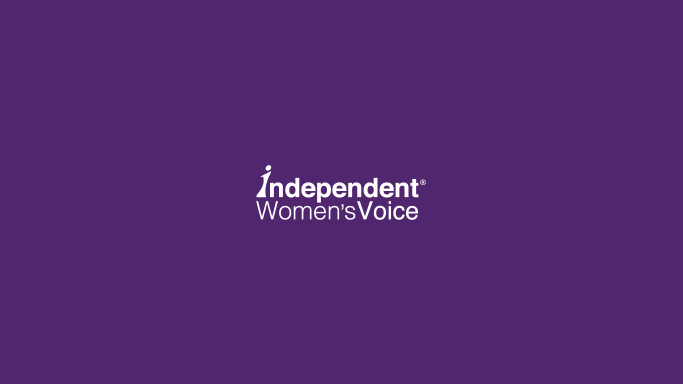Just a few days ago, the conventional wisdom about the presidential campaign was beginning to take hold: Mitt Romney's candidacy had failed to catch fire, and Barack Obama's re-election was almost certain. Wednesday's debate upended that notion. While there is still plenty of time for more twists in the campaign, it is clear that many voters who thought they had enough information about the candidates are now considering them in a new light.
One of the debate's major topics was health care, about which it is assumed the public has also largely made up its mind, either for or against ObamaCare. New research suggests that this assumption is wrong, and that a little education can prompt people to re-evaluate their positions.
Those who support the president's health law and those who oppose it have argued past one another. Supporters focus on what public-opinion surveys show to be the "popular" parts of ObamaCare (e.g. all the coverage provisions for those who might have difficulty obtaining insurance), while opponents focus on what public-opinion surveys have shown to be the least-popular aspects of the legislation (the individual mandate, Medicare cuts, "death panels," and a bureaucracy that will stand between doctors and patients).
Neither side conducted significant messaging programs to take on the opposition's arguments. Consequently, voters tended to accept both sets of arguments as true and chose whether to support or oppose ObamaCare based on their own preferences. Those most motivated by "fairness" lined up in favor of the law, while those most motivated by "liberty" or "quality of care" ended up against it.
Independent Women's Voice, an educational advocacy organization that runs the Repeal Pledge calling for the elimination of ObamaCare, believes that opinions about health care can be changed. When people's views are based on faulty or incomplete information, IWV has had great success in changing those views by offering solid information.
Over one week in mid-September, IWV conducted a message test among independent voters in 24,000 households spread over four states. The goal was to see if simply providing the facts about the true costs of the health law would affect popular support. Would independents, once they were educated about little-known but very real aspects of ObamaCare's popular elements, change their minds about those elements? Would their support overall for repeal increase?
After just one week of intensive, multipart, multimedia education message delivery to households in the test group, the results were dramatic.
One measure of the effectiveness of this education campaign is the presidential-ballot test, which becomes a proxy for how seriously people take either repealing or keeping the law. Independents increased their support for Mr. Romney (who was not mentioned in the informational messaging about ObamaCare, but who has been clear that he will repeal, then replace it) and they moved away from support for President Obama (who also was not mentioned in the messaging, but who clearly intends to implement the law).
The change was startling. The numbers moved a net +14 points, from 44%-42% in favor of Mr. Romney among the control group (which had received no IWV messaging) to 50%-34% in favor of Mr. Romney among the test group (which had received the IWV messaging).
Just what were the little-known facts about ObamaCare that the 24,000 independent households found so persuasive? You can find them, and their sources, at HealthReformQuestions.com, but here are a few examples:
• Americans know that ObamaCare requires insurance companies to allow families to keep adult children up to age 26 on their parents' policy. They are less likely to know that the provision increased the average family premium—even for families that didn't add adult dependents—by $150-$450 in 2011.
• The average family's health-insurance premiums are already up $1,300.
• Young workers who buy their own insurance will see a 19%-30% increase in premiums as a result of ObamaCare.
• Remember the 700,000 people whom the Congressional Budget Office predicted would make use of ObamaCare's federal high-risk program? Just 78,000 people have enrolled. As a result, each person in the program costs taxpayers millions of allocated dollars. Americans, when they hear this, know instinctively that there must be a better way to address the problem.
• ObamaCare was sold as the solution to covering the 47 million uninsured in America, but 10 years after the law is implemented, 30 million Americans will still be uninsured. What problem, exactly, is ObamaCare solving again?
• Americans are also generally familiar with Medicaid's problems, among them the refusal by many doctors to accept Medicaid patients. What most people don't know is that approximately 10 million of those who gain insurance under ObamaCare will just be dumped into the already cash-strapped Medicaid system.
IWV's research shows that this information makes a difference, and a big one. Independent voters who came to understand that ObamaCare's increased regulations would drive up insurance costs for young adults supported Mr. Romney over Mr. Obama, 74%-14%, up from a 50%-43% Romney lead before they were given the facts. Those informed of the disappointing enrollment in risk pools for pre-existing conditions support Mr. Romney over Mr. Obama, 60% to 31%.
For IWV's Repeal Pledge effort, the results are heartening: When they take onboard the facts about ObamaCare, many independents will adjust their thinking. As for the political meaning of it all, we'll leave that to the campaign consultants.
Ms. Higgins is president and CEO of Independent Women's Voice. Ms. Heath is a policy analyst with its sister organization, Independent Women's Forum.
A version of this article appeared October 5, 2012, on page A13 in the U.S. edition of The Wall Street Journal, with the headline: Informed Independents Cool to ObamaCare.
http://online.wsj.com/article/SB10000872396390444004704578032162895356162.html

